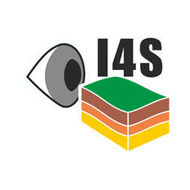Abstract
In-situ shifted excitation Raman difference spectroscopy (SERDS) experiments are presented using a portable sensor system. Key elements of this system are an in-house developed handheld probe with an implemented dual-wavelength diode laser at 785 nm. An optical power of 120 mW is achieved ex probe. Raman experiments are carried out in the laboratory for qualification using polystyrene as test sample. Here, a shot-noise limited signal-to-noise ratio (SNR) of 120 is achieved. Stability tests were performed and show a stable position of the Raman line under study within 0.1 cm-1 and a stable Raman intensity better ± 2% mainly limited by shot noise interference. SERDS experiments are carried out in an apple orchard for demonstration. Green apple leafs are used as test samples. The Raman spectra show huge background interferences by fluorescence and ambient daylight which almost obscure Raman signals from green leafs. The selected excitation power is 50 mW and the exposure time is 0.2 s to avoid detector saturation. SERDS efficiently separates the Raman signals from fluorescence and daylight contributions and generates an 11-fold improvement of the signal-to-background noise with respect to the measured Raman signals. The results demonstrate the capability of the portable SERDS system and enable rapid in-situ and undisturbed Raman investigations under daylight conditions.
